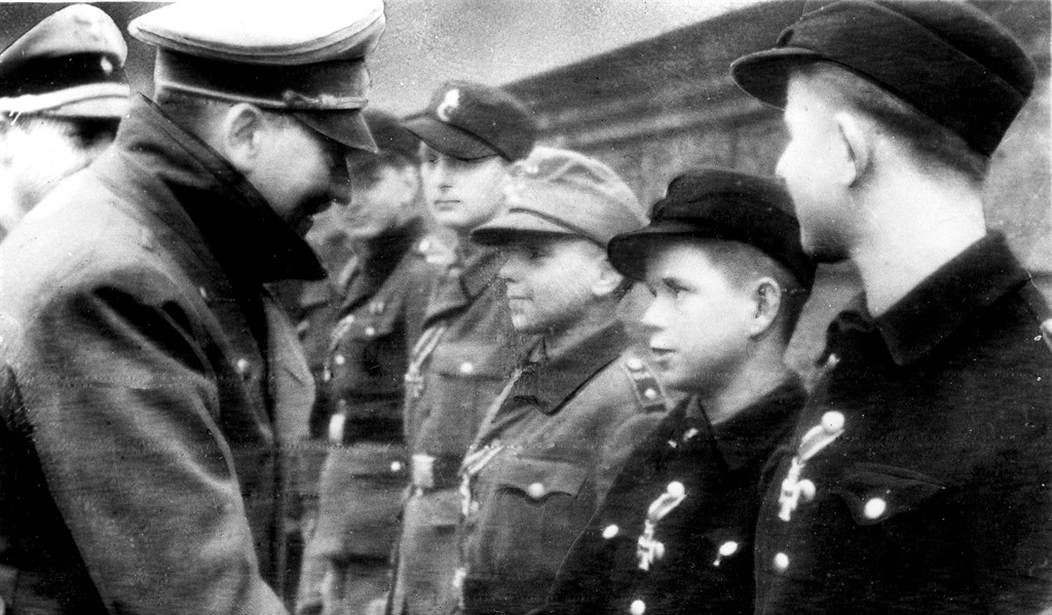No, it wasn’t the Normandy Landings though that certainly accelerated the death of Nazi Germany. We just commemorated the 78th anniversary of the landings which opened a second front against one of the most infamous regimes in human history. Winston Churchill and FDR made good on their promise from the Tehran Conference to open the second front in Europe by 1944. Once allied forces took the beaches and broke out of Normandy, the death of Nazi Germany was assured. Yet, the true death blow from these June offensives would occur a couple of weeks later from the Eastern front.
You could make the argument that Nazi Germany was doomed the moment Adolf Hitler launched Operation Barbarossa in 1941. The largest land invasion in history was also one of the most brutal chapters of World War II. Hitler amassed some 4 million men to invade Russia to establish a living space or “lebensraum” for the master Aryan race. While initially successful, the Russian winter bogged down advancing German armies. Stalin kept a significant amount of Soviet troops in Siberia for a Japanese invasion that never came from Manchuria. This is pure luck in the sense that while Allied powers talked as evidenced by the results of the Tehran Conference—the Axis never spoke about these sorts of joint operations. We should be grateful. Stalin used the winter months to ship thousands of tanks and hundreds of thousands of men toward the Ural Mountains for the Eastern front. All of these divisions were trained in winter warfare.
With these numbers, it was the end for Nazi Germany who could have clinched the initiative of capturing Moscow and breaking the Soviet will to fight if Hitler had not ordered Gen. Heinz Guderian and his Second Panzer Army to move south from northern Russia into Ukraine to assist Army Group South who Hitler thought was lagging. This tedious micromanagement by Hitler was also a reason why the Nazi objectives laid out for defeating Soviet Russia failed. If Hitler allowed his generals to do their job, history might have been different, but it was still a massive gamble given Russia's sheer land mass and the size of its armed forces.
By 1943, the Battle of Kursk showed that Soviet military capabilities had caught up to that of the Germans who lost the ability to launch any further offensives on the Eastern front. Oh, and the destruction of the German Sixth Army at Stalingrad which ended Germany’s hopes of capturing the Soviet Union’s industrial base was another turning point.
With allied forces now in France by June of 1944, the Soviets promised to deliver their knockout punch with Operation Bagration (via Hoover Institution):
Recommended
This week marks the anniversary of another major event in World War II that, though it will be little noticed outside of Russia, was just as important a piece in the mosaic of Allied victory as was D-Day. Operation Bagration, the Red Army offensive into Byelorussia from June 23 to August 19, 1944, resulted in the destruction of 28 of 34 divisions of the German Third Panzer, Fourth, and Ninth Armies of Army Group Center. The gutting of German forces in the East liberated the last parts of the Soviet Union and positioned the Red Army on the Vistula River, just across from Warsaw and within striking distance of Berlin.
Named after General Pyotr Bagration, who died defending Russia on the battlefield of Borodino in 1812, the operation fulfilled Joseph Stalin’s promise to Winston Churchill and Franklin Roosevelt at Tehran to launch an offensive in support of the opening of a western front in France. The Red Army carefully planned the operation, massing armor and troops across from Army Group Center while using maskirovka, or deception, to convince the Germans that its summer offensive would come further south in Ukraine, where the previous year’s offensives had left off. The Wehrmacht fell for the ruse hook, line, and sinker, positioning its operational reserves in the south and leaving Army Group Center vulnerable to a 7:1 Soviet superiority in armor. The Red Army offensive achieved complete surprise, leading to a devastating German defeat. The various battles encompassing Operation Bagration eliminated a quarter of the German Army’s strength in the East
Army Group Center had always been a thorn in the side of Soviet forces. It was the largest segment of Germany’s invasion force. They were able to redeploy forces and bog down Soviet advances. Destroying this fighting force was a necessity and would clear a highway for Soviet forces all the way to Berlin. It was a massive success, but while the losses Germany suffered were immense and irreplaceable—they had some 400-500,000 casualties—it was the loss of the cream of their officer corps that probably proved the most devastating. Most of the German’s most experienced officers, corps commanders, and non-commissioned officers were either killed or captured. By late 1944, there was no way Germany, which was fighting a two-front war, could recover.
So, while D-Day was one of many solid punches that killed Nazi Germany, Operation Bagration was a haymaker that all but signaled that the end was coming soon.

























